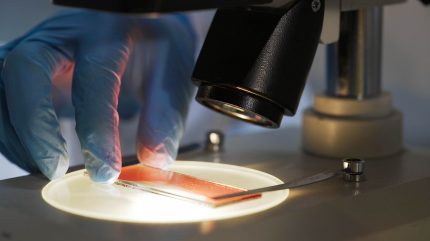
Bio-Techne has announced that Asuragen, part of its molecular diagnostics division, has achieved Class C Certification under the European Union In Vitro Diagnostic Regulation (IVDR) for its diagnostic test, QuantideX qPCR BCR-ABL IS Kit.
The kit was previously CE-IVD marked under the In Vitro Diagnostic Directive (IVDD). It now aligns with the new IVDR, which has replaced the IVDD in the EU.

Discover B2B Marketing That Performs
Combine business intelligence and editorial excellence to reach engaged professionals across 36 leading media platforms.
The highly sensitive qPCR-based in vitro diagnostic test is designed to monitor chronic myeloid leukaemia (CML) patients.
It quantifies BCR-ABL1 and ABL1 transcripts in blood samples. This is crucial for determining patients’ responses to tyrosine kinase inhibitor (TKI) therapy.
Regular monitoring with the QuantideX kit is essential for managing the treatment of individuals with CML effectively.
Bio-Techne diagnostics and genomics segment president Matt McManus said: “Bio-Techne is dedicated to quality and compliance, and we applaud this new IVDR for strengthening the safety and performance requirements for diagnostic products.

US Tariffs are shifting - will you react or anticipate?
Don’t let policy changes catch you off guard. Stay proactive with real-time data and expert analysis.
By GlobalData“We are proud to achieve this new certification and will continue to provide the molecular diagnostic and liquid biopsy solutions that deliver world-class performance, scalability, and reliable results for the laboratory scientists, physicians, and patients who count on us.”
In addition to facilitating direct reporting on the International Scale, the QuantideX kit streamlines laboratory workflows.
It also includes user-friendly analysis software, allowing clinical lab scientists to process up to 49 samples per plate, thereby offering a scalable solution for laboratories of different sizes.
The IVDR certification ensures that the QuantideX qPCR BCR-ABL IS Kit meets the requirements set forth for diagnostic tests within the EU.
Earlier this year, Bio-Techne announced that its biology divisions, Lunaphore and Advanced Cell Diagnostics (ACD), planned to introduce the fully automated spatial multiomics workflow.
This workflow will feature same-section hyperplex detection capability for RNA and protein biomarkers.





